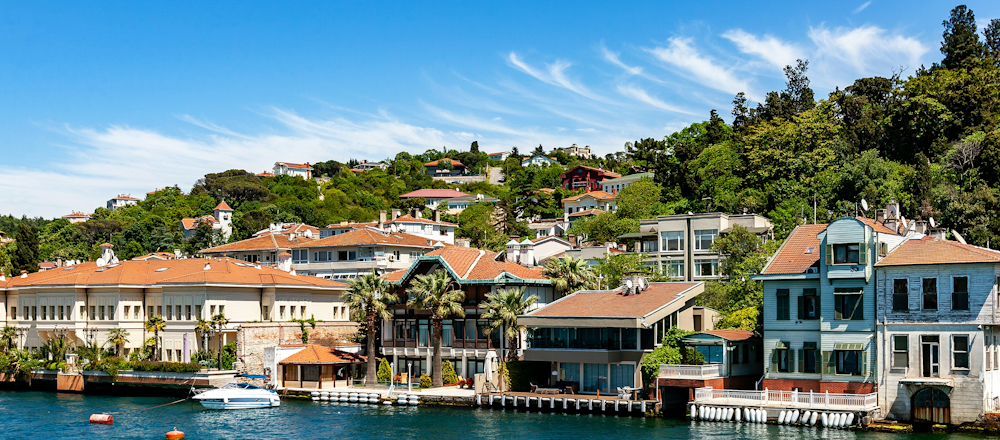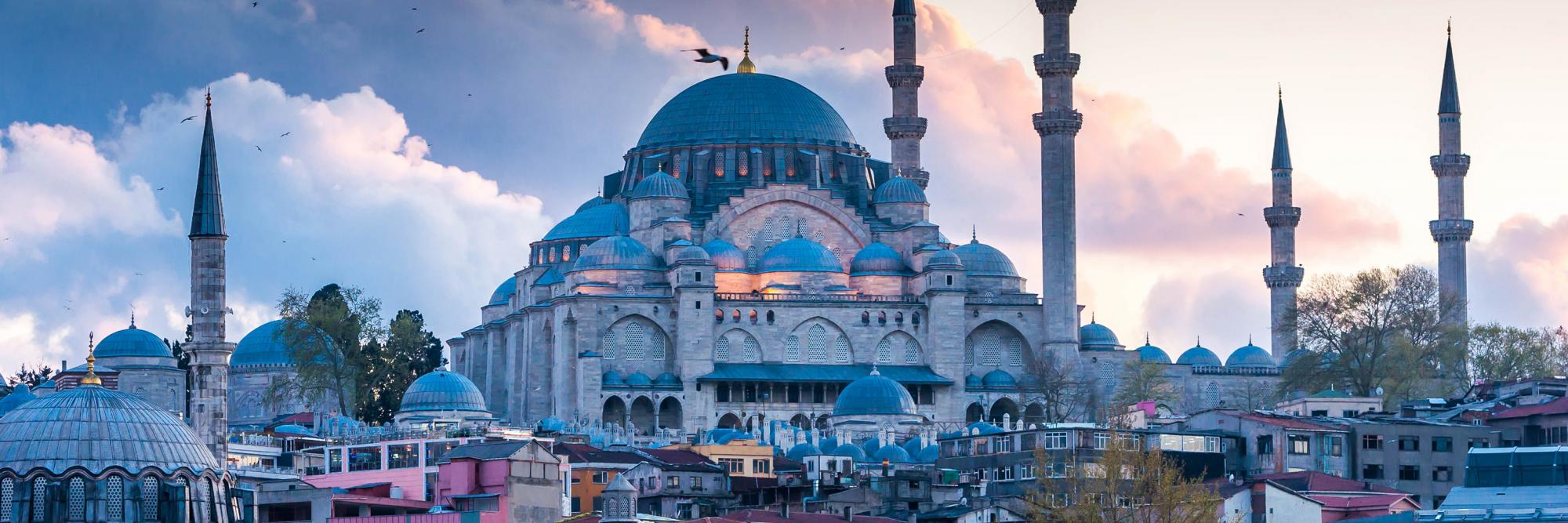Istanbul is a beast of a city – chaotic yet beautiful, and utterly confusing for the uninitiated. While the European side pulls in the crowds, the Asian side shouldn’t be ignored; it often wins on livability if the ferry commute fits your schedule.
Areas and suburbs in Istanbul

The city splits into 39 districts – 25 European, 14 Asian. From the relentless energy of the centre to sleepy Bosphorus villages, there is a corner for everyone, provided you know where to look.
Young professionals and singles who want to be close to their workplaces often head for the Beşiktaş district. Neighbourhoods like Arnavutköy, Ortaköy, and Levent are undeniably popular here, but rents can be eye watering. Beyoğlu – specifically Cihangir and Galata – is another expat stronghold, loved for its antique dealers and street life, although you’ll need strong legs for the hills.
Şişli sits right in the middle of the action. It hosts the posh, label-loving crowds of Teşvikiye and Nişantaşı, as well as the suit-and-tie hubs of Esentepe and Gayrettepe. Crucially, the metro links here are some of the best in the city.
Across the Bosphorus, Kadıköy has shed its sleepy reputation. Moda is now the city’s hipster heartland, teeming with third-wave coffee roasters and students. For actual peace and quiet, look further down the coast to Suadiye or Fenerbahçe.
Families with deeper pockets often head north to Sarıyer. It’s a different world up here, dominated by gated communities and villas, particularly in Zekeriyaköy near the Black Sea coast. It’s pricey, but you might snag a reasonably priced apartment if you have patience.
See the Best (and Worst) Areas and Suburbs in Istanbul for more detailed information on the city’s different neighbourhoods.
Types of accommodation in Istanbul
Options range from the modern site (gated complexes with gyms and pools) to the classic apartman – older, standalone buildings that make up the bulk of the city’s housing. Standalone villas are rare unless you venture to the northern suburbs or pay a fortune on the Bosphorus.
Long-term rentals are typically unfurnished, and in Turkey, that means bare bones. Don’t be surprised to find missing light fixtures or no white goods, although newer builds often include an oven and hob. If you can’t face equipping a flat from zero, look for eşyalı (furnished) listings, but be prepared to pay extra for the convenience.
Short-term rentals have been hit hard by 2024 legislation requiring 100 percent neighbour consent for Airbnb-style hosting. New regulations requiring unanimous neighbour consent have decimated the supply of casual holiday lets. What remains is often expensive or legally grey. Save yourself the headache and book a serviced apartment or hotel for your initial weeks.
Finding accommodation in Istanbul

Sahibinden and Hepsiemlak are the undisputed heavyweights of the property market. Move fast – good apartments vanish almost as soon as they hit the server. For a more informal route, Facebook groups like ‘Foreigners in Istanbul’ offer a steady stream of flatshares and direct from owner options.
You can rarely skip the estate agent (emlakçı). Most listings go through them, and they charge a standard commission of one month’s rent plus 20 percent VAT. While an added cost, a proactive agent often unlocks doors that remain closed to foreigners. Senior executives might prefer relocation companies, which handle the legwork and bypass the chaos of the open market.
Ignore distance; focus on time. A five-mile drive can be a breezy 20 minutes or a two-hour ordeal, depending on the route. Prioritise proximity to a metro station or ferry terminal above all else. A nearby Metrobus stop is also a huge asset.
Useful links
Renting accommodation in Istanbul
Making an application
The rental market moves quickly. You’ll likely need your passport and potentially a tax number (Vergi Numarası) – which you can get online – to sign a contract. Many landlords now also ask for a credit score report (Findeks) or proof of income. Since rental agreements are almost exclusively in Turkish, having a Turkish speaker with you is necessary to ensure you aren’t agreeing to unfavourable terms.
Leases, fees and deposits
Leases generally run for one year and roll over automatically. As of July 2024, the government abolished the 25 percent rent cap; increases are now pegged to the 12-month average of the Consumer Price Index (TÜFE). Tenants must secure a notarised rental contract to apply for residency – if a landlord hesitates on this, walk away.
Landlords usually ask for a deposit (depozito) of one or two months’ rent. While the law mandates this money sit in a time deposit account, most landlords still hold it personally.
Terminating the lease
Tenants hold the cards here: you can end a lease with just 15 days’ written notice before the renewal date. Landlords face a tougher battle and generally cannot evict a tenant unless they sell the property, move in themselves, or the tenant has stayed for 10 years.
Read Accommodation in Turkey to learn more about national rental processes.
Utilities in Istanbul

Short-term lets usually bundle bills into the rent. For long-term leases, transferring utilities into your name is mandatory. The immigration office frequently demands a utility bill in the applicant’s name as proof of address for residence permits.
In modern complexes (site), central heating costs often appear on the monthly maintenance bill (aidat). Scrutinise the aidat (maintenance fee) before signing anything. In high-end complexes with pools and 24/7 security, this monthly charge can add a stinging premium to your housing costs.
Electricity and gas
CK Boğaziçi serves the European side, while Enerjisa covers the Asian shore. You won’t get connected without a valid DASK (earthquake insurance) policy – it is non-negotiable. Be prepared for a wait at the service centre, and bring a Turkish speaker if you want to leave with the lights on.
Water
İSKİ manages the mains supply. While officially safe to drink, the mains water tastes heavily of chlorine. Locals almost never drink it, preferring to order 19-litre damacana bottles via apps for daily consumption.
Bins and recycling
Waste management falls to the local municipality (Belediye). While the government pushes its ‘Zero Waste’ (Sıfır Atık) initiative with colour-coded street bins, the city’s informal waste pickers still do most of the heavy lifting. You will see them working their way up and down the hills with massive carts, collecting paper and plastic long before the municipal trucks arrive.
In many apartment blocks, the doorman (kapıcı) collects rubbish from your doorstep each evening. They often handle grocery runs and small repairs too. A tip or small gift during the holidays goes a long way, even if you don’t share a common language.
